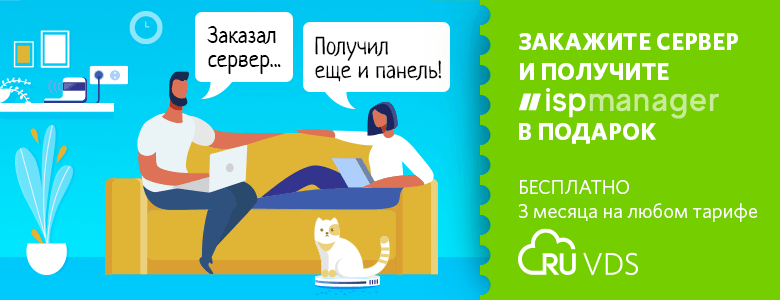yyy: what is it?
xxx: exchanged almost all of my former rubles for dollars! With my luck, now the dollar will definitely collapse (
Bash.im , the beginning of the story of the dude with dollars
Do you know that the fall of the ruble does not sadden some of the inhabitants of our country? There are many IT specialists among them - first of all, these are guys who receive wages in foreign currency or pegged to foreign currency (it's cool: you don't ask for anything, you don't change the intensity of work, you just live in an amazing time and the salary is growing by itself). In addition to IT specialists, these are some banks, companies that receive foreign currency payments for their products and services, zealous accumulators of dollars and euros under the mattress, etc. Naturally, this state of affairs with the exchange rate (high volatility, instability and a sharp reaction to political and economic triggers) is an excellent background for trying to make money on exchange rate differences, and not only the USD-RUB, EUR-RUB and USD- pairs. EUR, but also others. Well, is it time to run to the exchanger? In no case!
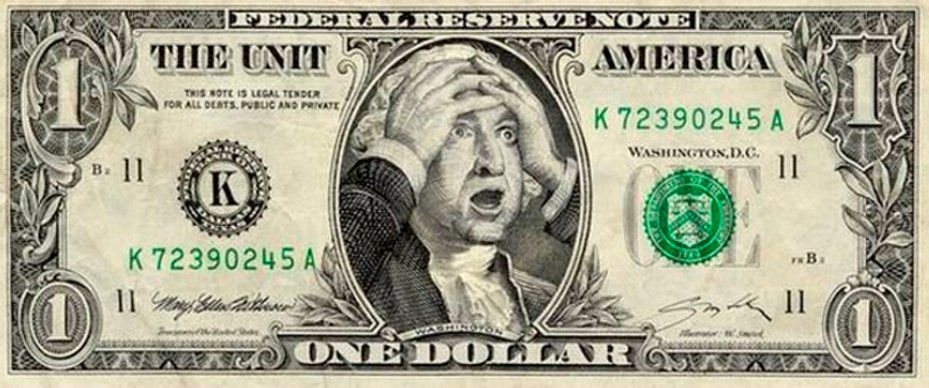
The dollar ruble saw the
previous articles of the cycle:
- Stock Market Newbies: Talking Honestly About Trading
- Stock Market Newbies: Honest Talk About Stocks
- Stock Market Newbies: An Honest Talk about Bonds
Important Disclaimer
- Our series is for newbies of all specialties, not just programmers, analysts and mathematicians. That is why we do not immerse our readers in the development of our algorithms and complex analytics.
- We know ourselves and we convince you that working on the stock exchange is not a fast and not an easy way to make money. Making money on your main job and freelancing is easier and more efficient. But since interest in stock instruments is constantly growing, we want to cover this topic in an accessible way for everyone. In many ways, we try to warn readers against losing large sums.
- , , RUVDS , METATRADER 5 ( ). .
- , . , .
I decided to structure this article differently from all the previous ones. We will not rant for a long time (we will not at all) about where so many currencies came from and when the Tower of Babel of world finance collapsed, but we will immediately discuss where and how you can make money on currency. All the pros, cons, risks, features and pitfalls are inside.
I love currency from the point of view of investing - it is an affordable, popular and intelligible tool, at least until your path as a novice investor crosses with the first scammers (usually this can be avoided if you are not greedy, analyze and think).
- The currency is liquid (unless you accidentally invest in a Botswana pool) - it can be quickly sold and bought when you need it.
- The mechanism of exchange rate differences is clear and relatively predictable, especially if you study the issue on historical data.
- You can create sets of currencies in an investment portfolio, combining them in terms of profitability and riskiness.
- Currency is an asset in itself and does not require additional tools to work with it. Bonds, shares, Eurobonds, options, etc. only at the request of the investor.
- You can start working in the foreign exchange market with a relatively small amount of investment.
So, I know 10 relatively honest ways to take
For the lazy, patient and conservative
▍1. Classic banking operations
The easiest way to "wrap" rubles into foreign currency is to go to the bank and buy one money for another and take it home. This is a long-term investment that can bring 15-20% profitability (or even more) over several years, even if the money simply lies at home in a safe or under a pillow. This is the most conservative strategy followed by hundreds of thousands of citizens of our country, especially at a time when the dollar or euro begin to give signals for growth.
However, you need to understand that a bank is a commercial structure, the main purpose of which is to make a profit. This means that the bank wants to make money on your foreign exchange transactions and earns at the expense of the bank's internal rate - a financial institution has the right to set the rate significantly higher than the exchange rate, as well as set a high difference between the purchase and sale prices of currency. This way the bank protects itself from mass excitement, dumping / buying of currency and several more banking risks. In addition, each bank has its own rate, and in neighboring bank branches there may be more favorable conditions. Therefore, before deciding to buy currency, look at the sites of banks available to you and choose the most profitable option in your region (the rate in the same bank is also different for different regions), especially when it comes to amounts over $ 1000.The difference can even be a few rubles, especially at the time of intense fluctuations in the exchange rate.
Alas, banking operations are unsuitable for "playing on the exchange rate difference", all your potential profit will be devoured by the bank's marginal boosts, so running to buy and sell currency in a short period of time is stupid (unless, of course, this is August 1998, 2008, 2014, etc.) - by the way, in such "acute" periods you may be told that there are not enough bills in the cash register).
pros
- An affordable way to purchase currency from 1 USD.
- Reliable exchange, help
- Guaranteed protection against fraud and counterfeiters
Minuses
- Overpayment of commission to the bank
- High spread (difference between buy and sell rates)
- Long-term, passive investment
Caution!
Do not use the services of separate exchangers "from the bank" - due to the lower level of control and protection, they can be a source of risks associated with a human factor or willful failure in software and networks. Also, avoid no-name banks, new banks, as well as various "crypto-techno" banks. There are enough reliable, secure financial institutions in our country.
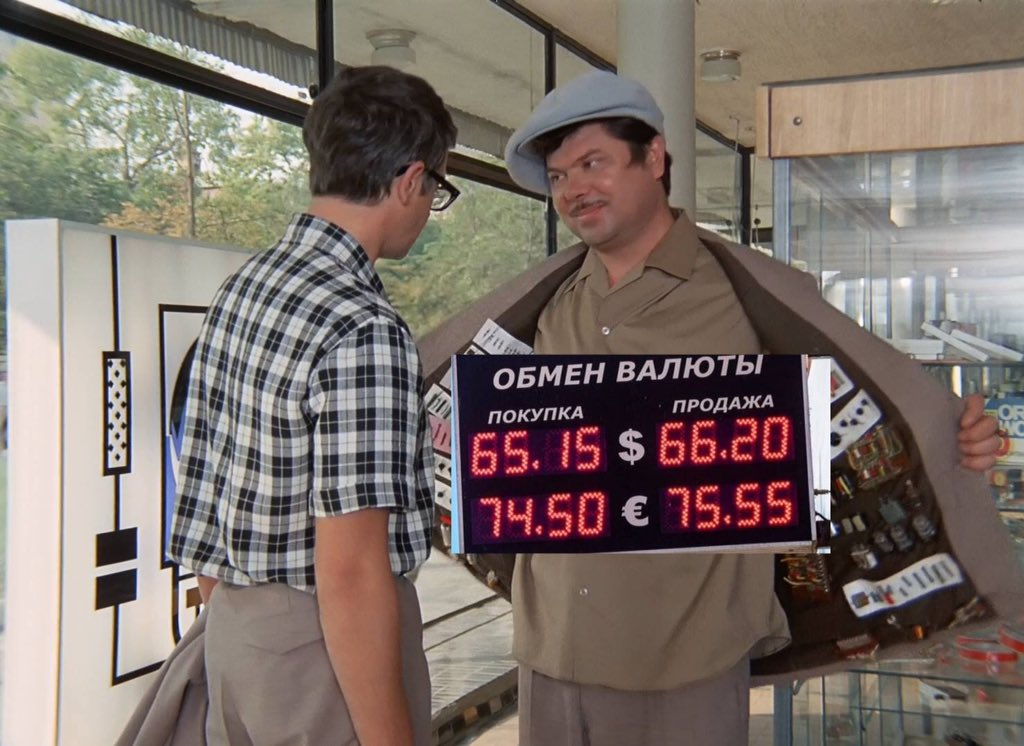
Already the beautiful is far away ... the past, in the sense
▍2. Bank foreign currency deposit
At the time of this writing (09.2020), the rate on foreign currency deposits in Russian banks is 0.6 - 0.8%. There are values and less. Indeed, a bank foreign currency deposit has an extremely low profitability due to the fact that banks insure themselves against currency risks. It turns out, in fact, this is a way to save money from minimal inflation and not keep it at home? Well, partly yes, because they "grow up themselves."
Let's take the same deposit of Bank N with a ruble rate of 6.8% per annum and a dollar rate of 0.7% ready. On January 14, 2020, we left the holidays and put in $ 10,000 for a year, and at that time an equal ruble analogue of RUB 609,000. As a result, by the end of the deposit term, the ruble deposit will earn 41 412 rubles, and the dollar one - 70 $, at the current exchange rate only 5 142 rubles. Boring. But the dollar on January 14 was worth 60.9 rubles, today 73.46 rubles, i.e. 125 600 RUB. So, keeping money in a dollar deposit seems more than reasonable with seemingly low profitability.

pros
- An affordable way to purchase currency from 1 USD.
- Deposit insurance program is spread
- No need to hide money at home
- Guaranteed secure bills when withdrawing money
Minuses
- Low interest rate
- Country and industry risk - yes, it is minimal, but it exists (for example, the circulation of the dollar and euro will be limited)
- Passive investing
Caution!
Again, estimate the average rate on foreign currency deposits in large banks from the top 5 and do not trust values that exceed the average by a third or more. This marketing trick of attracting private deposits can be a trap for an unreliable bank.
▍3. Buying currency on the exchange
But what if you buy currency directly on the Moscow Exchange at a fair rate set by it? Now you can stop yawning over the article - this is more interesting. Indeed, any private person can buy currency without the markups of commercial banks to his brokerage account or to his IIS (which is even more profitable) - for this you need to conclude an agreement with a broker and start buying. However, there is still a minimum lot on the Moscow Exchange - $ 1,000. Why do you say bye? Because for several years already, the Moscow Exchange has been promising to start trading with a lot of less than 1000 USD, namely from 1 cent (0.01 USD), at the moment this promise extends to 2021, but history has been postponed many times. Therefore, while we are talking about a lot of 1000 USD. But in general it's very cool - you buy currency at the same price as banks.
Buying currency through a broker on the Moscow Exchange has several additional advantages:
- you can track exchange rates and open and close deals when you need it;
- you can buy currency for savings, savings and bank deposits;
- you can buy currency at a favorable rate before going on vacation abroad, so as not to shy away from exchangers and sometimes overpay just fierce commissions;
- you can buy currency before making a large purchase in a foreign online store - even with brokerage commissions it is cheaper;
- Broker companies have mobile applications through which you can easily buy and exchange various currencies and make transactions - and if the history of a mobile phone is not serious for securities, then it is quite a convenient and adequate tool for currency.
Finally, by connecting to a broker, you get the opportunity to make speculative transactions with currencies in the stock market: buy and sell, work with available currencies of different countries. It is very convenient to do this in MetaTrader, which, among other things, supports its own built-in programming language MetaQuotes Language 5 (MQL5). Well, when trading currency, it is better to avoid prying eyes and access of prying hands and paws to your account - therefore we recommend using a powerful and secure server with MetaTrader 5 on board . It is very convenient for both beginners and experienced investors - it is not for nothing that well-known broker companies trust RUVDS servers . So, set up MetaTrader and work with currency positions, diversify your portfolio. Currency is always an interesting and liquid asset.
pros
- The ability to work with exchange transactions, i.e. earn on minimal fluctuations in the exchange rate
- The ability to buy currency at the exchange price
- Security and accountability of transactions
- Many mobile solutions for working with foreign exchange assets
Minuses
- High threshold of entry
- The need to pay commissions to the broker
- Together with the exchange, you bear all political, economic and country risks
Caution!
Work only with trusted, licensed brokers or online brokers of large banks that have been on the market for a long time, avoid any dubious offices. If your broker offers you to buy currency not on the Moscow Exchange, but from a company, institution, broker's branch, etc., refuse the transaction, with a high probability these are scammers.
▍4. ETF and mutual fund
Units of mutual funds (mutual funds) and shares of ETF (Exchange Traded Fund, exchange-traded fund) - this is the case when an investor buys a share of assets, entrusting his money to a management company. ETF is more interesting due to the fact that it is a liquid exchange-traded instrument, a mutual fund is suitable for a passive, conservative investor.
Management companies of mutual funds or ETFs invest in stocks and bonds of various companies "collected" money and pay the investor a proportional part of his investment. It is a simple and affordable tool that is suitable for both a beginner and an experienced investor to diversify their portfolio.
All things being equal, I recommend that you open IIS and invest in reliable and convenient ETFs. This is highly likely to be a successful investment.
pros
- Stable, reliable tools
- Suitable for any investor with any skill level
- It is possible to purchase a small share
Minuses
- Not the most profitable instruments
Caution!
Buy mutual funds and ETFs only from trusted companies, do not get fooled by new and unfamiliar offers.
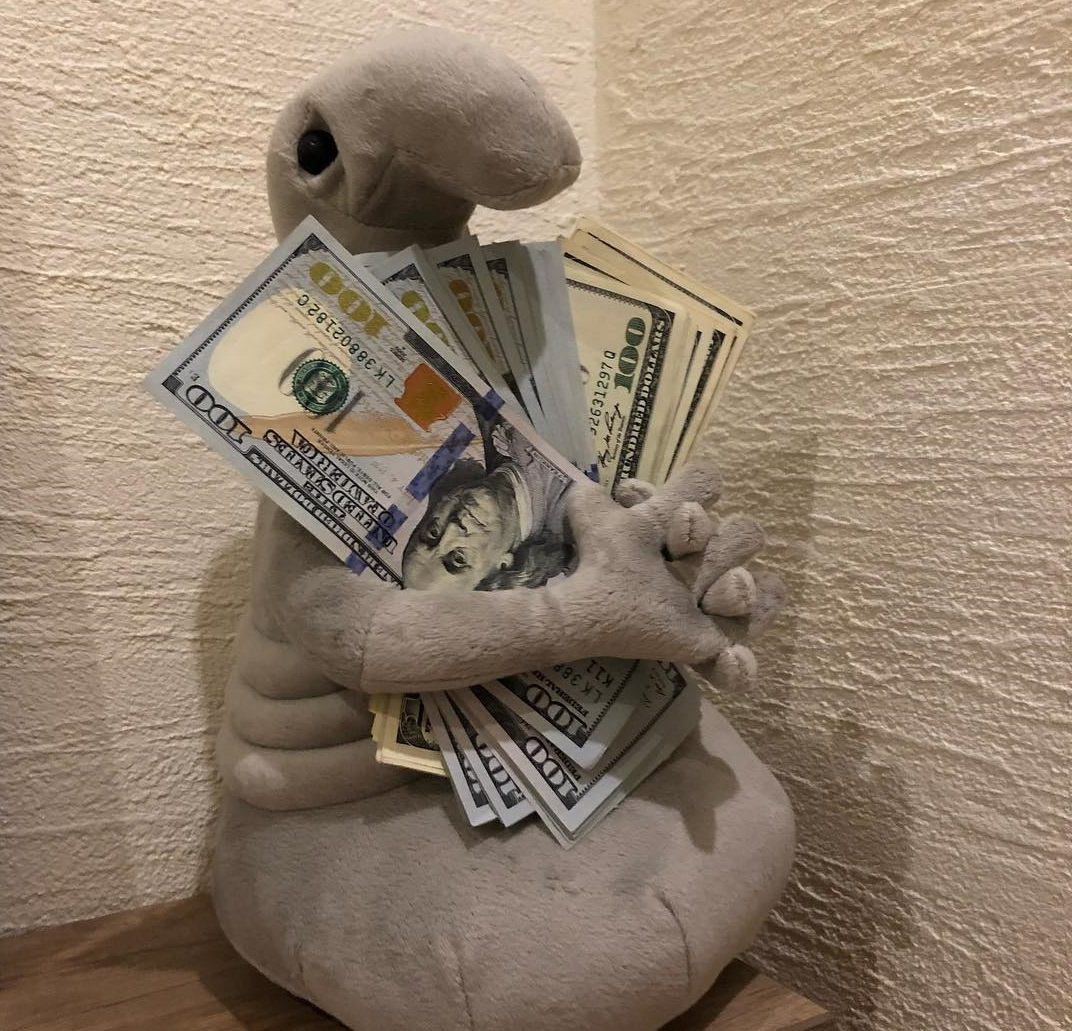
Conservative investor
For those who like to pick numbers and graphics
▍5. Foreign shares
With a foreign exchange account, you can enter a foreign exchange or the St. Petersburg Stock Exchange through a broker and add shares of foreign companies to your investment portfolio, among which there are many tools for any investment strategy: from ultra-conservative to aggressive (for example, shares of technology companies that recently went public ).
You can read about some of the nuances of working with any stocks in our article , but let's make a reservation about the important thing : you need to know English well in order to conduct fundamental analysis. Google Translate will not help you understand the subtle nuances of company reporting, events and news. Without language, you will miss this information, and making deals with stocks without detailed analytics is sheer risk and stupidity.
▍6. Eurobonds, options and futures
Eurobonds (Eurobonds) are securities denominated in the currency of another country. It can be any currency, not necessarily the euro - it’s just a historical name. Eurobonds are long-term (up to 40 years) debt obligations with the right to receive a coupon yield and to redeem the bond at par. Buying these bonds and keeping them in your investment portfolio is a great insurance against ruble volatility. When buying bonds, pay attention to the issuer (it can be either a state or a commercial company), the terms of purchase and redemption, the amount and frequency of coupon payments.
Eurobonds can be bought through a Russian or foreign broker, which means that it is important to control all the risks associated with brokerage activities and check the license and reputation of your financial agent.
Options and futures are generally not a story for newcomers to the stock market, but it is impossible not to mention these derivatives (derivative securities), because currency is a very popular and popular exchange commodity. If so, it's time and place to use contracts. So, currency options are such exchange (and over-the-counter) contracts, according to which the buyer has the right to sell or buy the desired currency at a specific rate on a specified day. The contract has a rate (strike price), a strike date and an amount of the base currency. It also has a nice feature: the contract is not executed if on the day of execution the exchange rate is more profitable than the option rate.
The same cannot be said about futures, where the execution of the contract is mandatory. Futures is an obligation to deliver a commodity (in our case, currency) within a few days or months. A futures contract has a strict fulfillment obligation, but an investor can sell or buy a futures contract, thereby withdrawing or accepting this obligation.
This is very short, because there are buy and sell options, there are forward contracts, three types of options, and much more. This is the topic of a separate large article. Frankly, it is better not to meddle in options ourselves, this is a high-risk instrument, but with the help of a broker it is quite possible to diversify a portfolio with derivatives.
pros
- Eurobonds are a reliable conservative instrument
- Options and futures are excellent insurance of your currency against rate fluctuations, these are instruments with good profitability
- All of the listed instruments are liquid and interesting object of speculative transactions
Minuses
- Eurobonds tend to have a low coupon yield and a too long maturity
- Options and futures require enormous knowledge and skills in working with the stock market; for a beginner, an almost impossible option with great risks
For the risky and desperate
In an ideal world, I would wish that this section did not exist. Probably because I'm too
▍7. FOREX
I wrote expert texts on finance for several publications and companies from the top 5 financial market of Russia, and always in the terms of reference for the text there was a request "just not Forex", "Forex not to mention", etc. On the one hand, technical specifications are always written by unfortunate marketers who fear for the company's reputation and do not go into details, on the other hand, I perfectly understand the reasons for such a common item in assignments. But since RUVDS does not write any TK and in general allows the authors to express themselves in a rather democratic way, I will write about FOREX as it is and why it happened.
“Forex (from English - FOReign EXchange -“ foreign exchange ”) is a market for international exchange of currencies at freely forming (without restrictions) quotations (offered prices) based on the demand for the currency and, accordingly, supply. The market participants are various banks (central banks, commercial), brokers and dealers, insurance and pension organizations and others (including private investors / traders). " This is the classic, accurate and comprehensive definition of FOREX that can be found online or in a textbook. In human terms, this is an OTC market without a physical center and a trading platform, where banks, companies, financial agents and even private investors trade currency.
Trading on FOREX is trivial and boring: a trader (that is, you or any other person) works with the charts of traded currency pairs in the same absolutely legal and excellent MetaTrader, closes deals, fixes profit or loss. 1 lot for the Forex market is equal to 100 thousand units of the base currency. The minimum lot size that can be traded on Forex is 0.1 lot or 10 thousand units of the base currency, however, your broker may have their own conditions and you can often start trading from 1 or 10 $. Since no one is interested in such amounts, the broker provides you with leverage (leverage) and you and your $ 10 turn into a dude with $ 10,000, for example (leverage 1: 1000). If the deal is successful, you will make good money, and the broker will receive a commission, if not, you will lose your $ 10 asset (or how much you have).
Such a simple scheme, weak regulation and over-the-counter trading nature could not fail to gather fraudsters of all stripes. The majority of FOREX brokers and dealers are fly-by-night companies, home-grown financial advisors. networkers and other evil spirits. By itself, FOREX is more of a gambling casino, but with the participation of all this contingent it is so simple a robber's den. The schemes for involving in pyramids and stories with high leverage are quite perfect, even an experienced investor can get caught.
Therefore, my advice: it is better to bypass FOREX, but if you decide to play with leverage (and I emphasize that this is not a reasonable investment, but almost a gamble), choose certified brokers and dealers who have been on the market for more than 10 years. At least they passed all legislative filters and learned how to work in the legal field (well, almost).
▍8. PAMM accounts
At this point, you can simply go to point 9 and dream, because I myself do not trust PAMM accounts, I do not like them and would never have contacted them myself. However, they are worth mentioning at least so that you, my novice investor friend, hearing the word "PAMM accounts", would remember this article and move on. Past. So, PAMM accounts are accounts that a broker creates by bringing you, other investors and a certain manager together. The manager, an experienced investor and analyst (in a good scenario), neatly makes transactions with currency, and you all follow his example: he sold 50% of his assets and you, he bought yuan for everything and you (more precisely, not you, but most often automated trading terminal) ... etc. For successful "moves" he receives a commission and earns on it. Naturally, this is the place for various adventures and dishonest moves,at least at first glance, it seems to the manager of the holy cause to trade carefully and profitably.
I will not write about the pros and cons, here it is solid, be careful and do not get stuck. Although you can find plenty of rave reviews about such a Forex trading strategy if you want to. Until the first time.
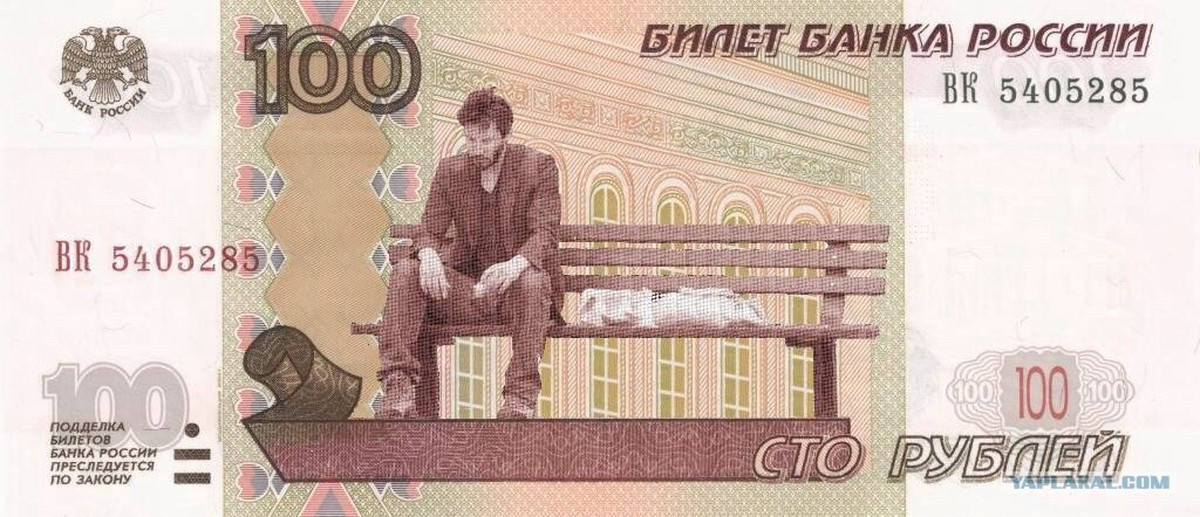
For the very wealthy
▍9. The property
I have always had a rather positive attitude towards investing in any real estate, because the simplest apartment in Brezhnev is getting cheaper much more slowly than the ruble and at least saves money, or even makes them work. For example, you bought a small good apartment for 3 million rubles (not in the capital) and rent it out to a student or a young couple for 20,000 rubles a month. In total, for the year you receive 240,000 rubles per year, that is, income at a rate of 12% per annum. Not bad. In this case, the apartment may rise in price by itself. In general, I have always liked this idea, despite not the highest liquidity and additional costs on transactions.
So, if you have a currency and the amount of this currency has exceeded 50-100 thousand USD, you should take a closer look at foreign real estate as a form of investment. I'm not talking about buying a villa on the Cote d'Azur (why not, if there is one?), I'm talking about small apartments or apartments that can be purchased and either saved as an investment and used for personal holidays, or rented out to vacationers and received for it extra money. By the way, again, it does not have to be France, Spain or the United States - it is much more interesting to do such things in countries such as Italy, Bulgaria, Montenegro, the Czech Republic and even Georgia (where solutions can be found much cheaper than the indicated amount). In some countries, you can obtain citizenship by a bonus (if there is a dual citizenship agreement with your country of residence).
True, I confess, COVID-19 has shaken my faith in this tool, but this story will end and in our century is unlikely to repeat itself in this format, but the risk assessment should be treated as thoughtfully as possible: assess the standard of living, tourist flow, the state of the chosen country, quality real estate, transport logistics, etc.
pros
- Ownership is inalienable under international law.
- You can relax yourself and rent your property to reliable friends.
- Overseas property values end up steadily growing (although there are serious and prolonged rebounds).
- You can earn additional income by renting out real estate - but only if you can find housing in a popular or demanded geographic area.
Minuses
- Entering the real estate market is expensive and requires an understanding of the legal nuances.
- — , - .
- (, , -, ).
- ( « » , , ).
- .
- , — , - (, , ).
Caution!
It is better to know the language of the country where you buy the property, or at least speak English - this way you can understand what they are saying, imposed on you, trying to sell. Use the services of large and reliable intermediaries, there are many scammers in this market. And yes, get a separate card and a separate account for foreign exchange calculations and receiving payments (if you rent out housing).
10. Other methods
Other ways of foreign exchange investing include education and medical treatment abroad (investing in yourself and in your career), venture investing (you can invest in a startup or buy a share in it), investments in art, cars, etc. But these are already very narrow and not completely "engineering" ways to get income in a year or three generations, which are rather determined by an impulse of the soul or a realized need, passion for something. Therefore, there can be no descriptions of schemes or tips here.
pros
- You invest in what you like and what you are really very good at.
- It is possible to get a high income.
- The investment goal is always defined.
- Assets are easy to value.
Minuses
- Lots of legal issues.
- Fraudsters love such special areas; there are whole schemes of deceiving investors both in art and, for example, in venture.
- As a rule, this is a long-term investment.
- Different liquidity of assets.
Caution!
Purchase of expensive imported equipment, new serial cars and other personal vehicles, cosmetics, modern household items, etc. - this is a purchase, that is, a net cost of funds without a growth perspective, and not an investment. In addition, depreciation works for such goods and you lose from 10 to 50% of the cost, simply leaving the store or leaving the car dealership.
In addition to those listed, there are other methods such as exchange using electronic wallets, and so on. These are not the most obvious ways that may turn out to be dangerous, and they do not in any way relate to the investment process: currency withdrawal is stupid.
I am now completing an article under the news that the euro has exceeded 90 rubles per unit. And how many adults, experienced investors who do not believe in euros were at the beginning of his journey, almost 20 years ago. But now is not the time to rush into new assets, it is better to choose reliable, proven tools, of which, in principle, there are many. At the end of my words, I want to remind you that currency is first of all money, and then only a way to save other money, assets and goods. And money should work. Which way to choose is up to you. But whatever you decide, think about the risks. Thinking is generally cool, especially in investments.

